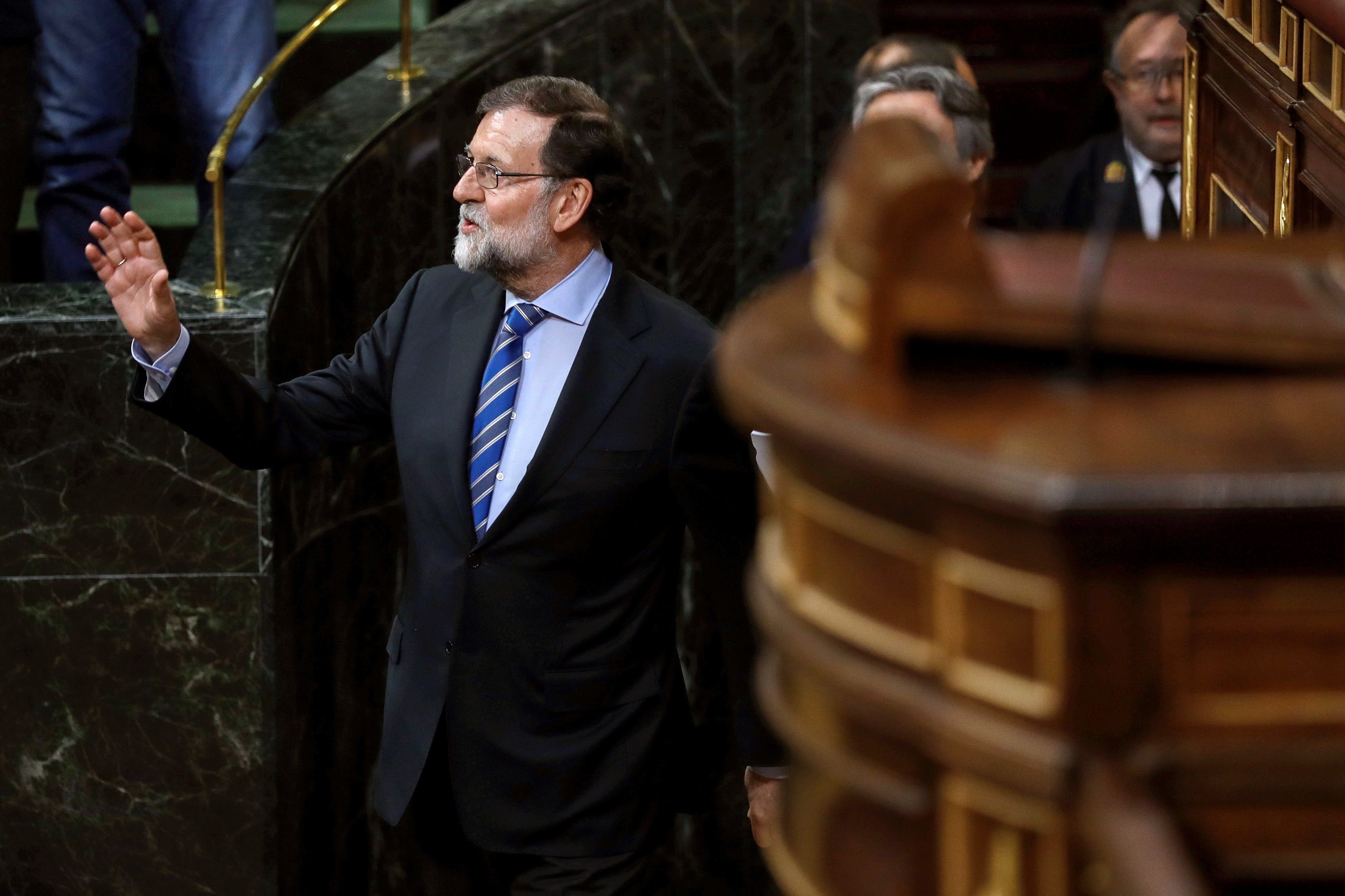The Spanish government has gained a lifeline to survive the current legislature, thanks to the 'yes' vote from EAJ to its 2018 budget, joining support from Ciudadanos (Cs), Coalición Canaria and Nueva Canarias. This Wednesday's result meets the best hopes of Mariano Rajoy and his Partido Popular, which, with the passing of the budget, trusts in a calm two years in the run up to the next general election in 2020. In this way, it's expected that they will move forwards with total war against Ciudadanos, their greatest opponent within the Spanish right, looking towards next year's local and autonomous community elections.
"I hope not and we'll work so it's not like that. And I can't understand that. We've agreed the budget with Cs and if that's happened, I hope that there's no such wish on either side", said Rajoy in a press conference after the vote, talking about whether the war with Cs has started. The question followed treasury minister Cristóbal Montoro refusing to greet Albert Rivera when he walked over after the vote. It came in the middle of broad criticism from Rivera's Cs party towards Montoro, and the fight between his ministry and Supreme Court judge Pablo Llarena over the allegations of misuse of public funds in last year's Catalan referendum.
Despite the denial from the prime minister, however, the approval of this budget is key for the Moncloa government palace to relaunch its fight with Cs. Firstly, because next year there are local and autonomous community elections, a time for the Spanish government to flaunt the policies it has passed. It can also dedicate all its efforts to the cause, without having to worry about the weakness of the central executive or the possibility this would lead to an early general election, as PSOE demanded.
Secondly, because even though the relationship between Cs and EAJ with PP was given for over this Wednesday, the Moncloa could still stretch it out to guarantee reaching 2020. "For the legislature to run out is very important, the rules of the game must be obeyed," said the prime minister.
Given this situation, Rajoy didn't want to comment on EAJ's change of position. The party finally agreed to support the budget despite article 155 still being in effect in Catalonia, having said previously they wouldn't vote 'yes' until the article is lifted. He said there had been "many opinions" on the use of the article and said he has no suggestions, as EAJ's spokesperson, Aitor Esteban has said, over the possibility of Catalan president Quim Torra nominating new ministers for the article to be lifted. "No one has told me that a government has to be formed tomorrow in Catalonia." Moreover, the prime minister described it as "pure common sense" that no one can be "health minister being in Belgium", referring to Torra's nomination of Toni Comín.
The central executive plans this month to hold a meeting of the Council of Fiscal and Financial Policy to start the new project of financing of the autonomous communities. This should also help PP and PSOE gain ground on Cs, which isn't in power in any of them. Rajoy also said that he would like the state of the nation debate to take place in June, once the Senate has also approved the budget.

